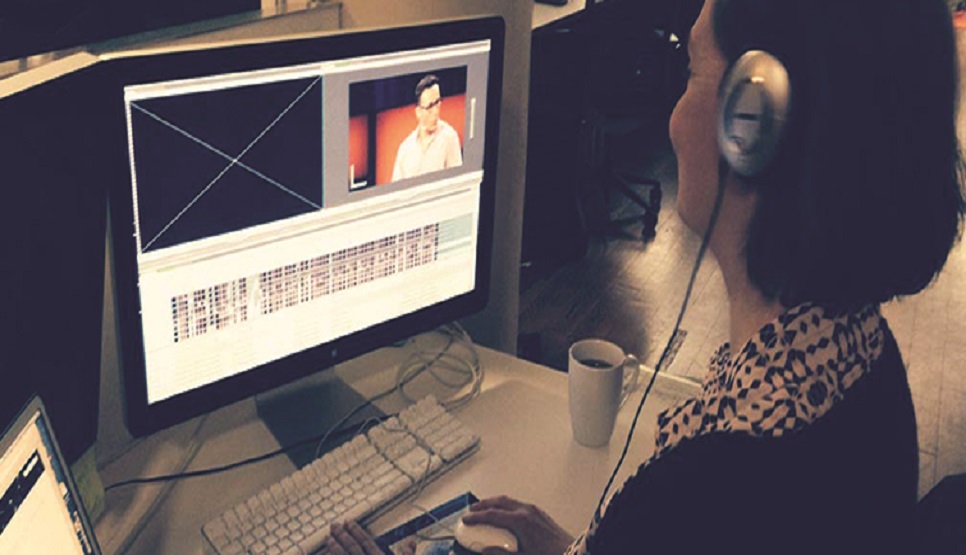
Poker today is a global phenomenon and the figures are rising all the time. According to research commissioned by the non-profit PPA (Poker Players Alliance) around 70 million Americans play poker live and/or online – that’s more than 20% of the population. Another 100 million are thought to play the game worldwide.
Why then, is poker so popular? There must be more to poker’s attraction than its showbiz allure. On one thing, enthusiasts of all levels tend to agree: poker can build self-confidence, which might be the single most transferable skill of them all… Here then, are some suggestions as to why this might be so:
Conquer Maths Anxiety!
Maths anxiety, first identified in the 1950s, is the chronic fear of maths. If the prospect of doing maths brings you out in a cold sweat, the chances are that you too suffer from maths anxiety.
Maths anxiety is a fear of numbers. It’s surprisingly common – in the UK for instance, it affects some 16 million people; about a quarter of the population. It’s also surprisingly well-studied psychological condition, with research indicating that the panic induced by having to do math is so intense for some people that sometimes it even activates your brain’s “pain matrix.”
For sufferers, grappling with a maths problem releases stress hormones associated with the fight/flight reflex you could expect from confronting, say, a hungry tiger. Imagine the selfsame response, but provoked by something as banal as having to measure a carpet or decode a phone bill. Relax though, for help may be at hand.
As with any skill, mathematics gets easier, the more of it you do. The trick is to practise without at any point thinking of it as doing maths. And that’s where a game like poker comes in. The very mechanics of the game, the calculation of ever-shifting odds, is maths in motion. It may not feel like it, but during the course of play, your brain is making hundreds of percentage-based computations. At the green felt table, your brain can crunch all those numbers naturally and fearlessly, because it thinks it’s just playing a game.
Know The Measure Of Your Hand

Confidence is, in many ways, tied to competence. As you amass knowledge in a subject, confidence in your abilities grows proportionately. When you first begin to play poker, you’ll be either timid or reckless. But you will certainly not be good. You’ll make beginner’s mistakes. As you get a feel for the game, your play will become more assertive (perhaps overly so). Eventually a player reaches the enlightened state of knowing just what it is they know, and what they have yet to learn. And there’s always something. So, be confident in your abilities, and learn to recognise your limitations. This applies to all walks of life. Unless you have absolutely no idea what you’re doing, in which case…
Learn How To Bluff!

Poor Le Chiffre, betrayed in the ultimate high-stakes game by the shedding of a single ruby tear at a critical moment. Oh, the heavy hand of irony. A fictional playboy villain is hardly representative, but everyone, player or not, has a “tell”, a visual or verbal tic or cue that signals the onset of a sudden anxiety, a spasm of nerves or excitement. Some of these tells fall into what science calls microexpressions – incredibly brief in duration movements of the facial muscles, lasting only 1/25th to 1/15th of a second.
In poker, it is as crucial to successfully conceal your tell as it is to read that of another. If you find your opponent’s tells, you can spot when they’re bluffing. And vice versa. As each round progresses, you are called to check, bet, fold, call or raise, according to standard poker rules. Each of these actions are expected to show what you believe about your hand. Is it good or are you bluffing? What about your opponents?
The ability to spot a tell has a range of applications that go way beyond poker. On any given day you can expect to be lied to from 10 to 200 times, and more than 82% of these lies will slip by undetected, so learning how to spot a lie or a bluff is a useful skill in its own regard. Unconvinced? Just ask Pinocchio – who would have made for a much worse poker player than Le Chiffre.
The Importance Of Eye Contact
Eyes are the proverbial “windows to the soul.” A steady gaze appears to denote frankness and confidence. The key word here is appears.
Failure to maintain eye contact is perceived as weakness, unreliability. Doubtlessly, the other extreme is equally unwelcome – everyone must surely feel the need to blink occasionally. In fact, the average person will blink 6-10 times per minute – less than this is just plain scary, whilst a higher blink rate tends to signal attraction, anxiety or excitement. Or possibly a slipped contact lens. Maintaining good eye contact is a crucial skill – especially for salespeople, managers and pretty much everyone, when it comes to interpersonal relationships.
Dress To Impress?

Professional poker players are often snappy dressers. Picture the archetypal riverboat gambler, suited in linen and silks. Compare this image with a modern-day celebrity player – fashions have changed of course, but still the poker player is, more often than not, impeccably tailored.
His/her image is a projection, the physical manifestation of ‘confidence’ – and in poker, confidence born from skill translates as wealth, to be measured in winnings. A “good” player may dress expensively (not necessarily ostentatiously); it’s part of their bluff, they are dressing to impress. Often, to intimidate. At the same time, you may notice a lot of poker pros do the exact opposite: they choose generic getups. This way, their opponents will possibly underestimate them, which in effect gives them an advantage. There’s also something to be said about comfortable clothes – being physically comfortable allows you to be more efficient in any situation. A 2012 Northwestern University study confirms all this: “enclothed cognition” is the influence that your clothes have on your psychology and mood, and it was proven to make a huge difference.
What can we get out of all this? Simply taking a moment to think about what your attire conveys about your personality is enough to help you make better choices. Let’s not forget, if your clothes make you feel confident, you move in an all-together more attractive manner. Which by happy coincidence makes you appear more confident than perhaps you really are. A virtuous circle.
Sharpen Up Your Conversational Skills
Poker is a social game. Other players are involved. You’ll have to sit near them and everything, there’s really no avoiding it. At semi-regular intervals, you’re going to have to talk to them; unless you’re actually playing a robot, conversation will be exchanged.
You may be the shyest person in the world, a wilting violet in a dark and shadowy corner, but through playing poker, a veritable spotlight will freeze you in its beam each and every round, and you’ll have to learn to deal with it. That’s not bad at all. Even if you choose not to put them to use very often, social skills are very important in life and can make all the difference when you’re trying to land that dream job or even get a date.
There are indeed many social, mental and psychological benefits to playing a simple, enjoyable game like poker. But perhaps the biggest one of all is the card game’s capacity to help you strengthen your self-confidence. So unwind a little, smile, crack a joke as you play; after all, if you play your cards right, you could be sitting at that table for a long time…
References & Sources for Further Reading:
- mathgoodies.com – Understanding and Overcoming Anxiety
- impactfactory.com – Use Eye Contact to Create better Relationships
- phoenixcounsellingnw.co.uk – Building Self Confidence
- pokerstars.com – Understanding the Rules of Poker
- careerproinc.com – How to sharpen Your Communication Skills
Featured photo credit: Entrepreneur via entrepreneur.com
The post 6 Ways Poker Can Help Build Your Confidence appeared first on Lifehack.
Source: Lifestyle






